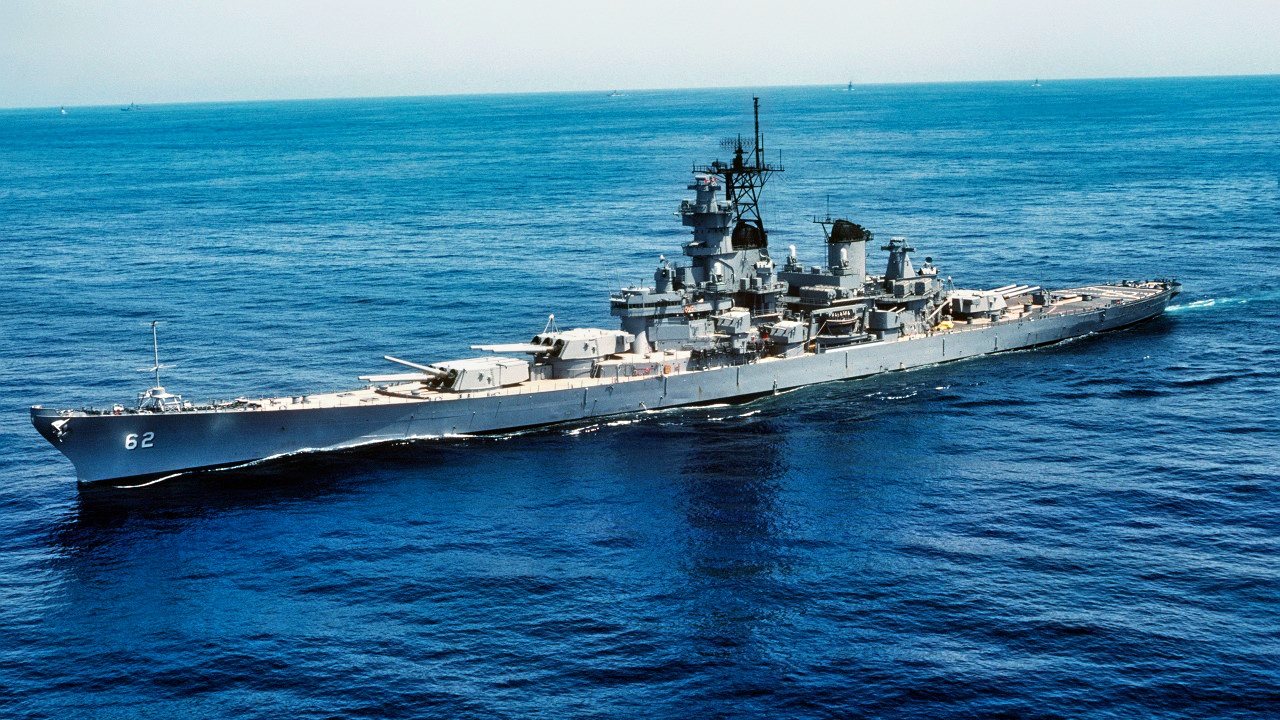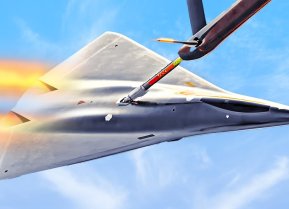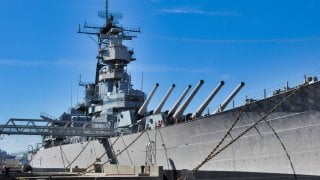Battleship USS New Jersey Fired 5,000 16-Inch Shells During Vietnam War
The USS New Jersey (BB-62), an Iowa-class battleship, played a significant but relatively short role in the Vietnam War, serving from the fall of 1968 to the spring of 1969.
Summary and Key Points: The USS New Jersey (BB-62), an Iowa-class battleship, played a significant but relatively short role in the Vietnam War, serving from the fall of 1968 to the spring of 1969. Known as "Big J," the battleship was called back into service during the final phase of the Tet Offensive, delivering devastating firepower against enemy positions along the coast of South Vietnam.
-In less than a year, the New Jersey fired an astounding 12 million pounds of munitions, including nearly 6,000 16-inch shells, effectively destroying enemy infrastructure such as bunkers, artillery sites, and trenches. Despite its effectiveness, the New Jersey's deployment was brief, likely due to the high operational costs and the strategic preference for carrier-based airpower during the war.
-The battleship, now a museum ship in Camden, New Jersey, remains the most decorated ship in U.S. Navy history.
USS New Jersey: The Battleship that Blasted the Enemy in Vietnam
When it comes to the Vietnam War, you often think of Huey helicopters and bloody jungle fighting. But there was a naval aspect to the conflict as well. The Iowa-class battleship USS New Jersey was recalled to serve off the coast of South Vietnam in 1968 at the end of the Tet Offensive – the surprise attacks carried out by the Communist-led insurgency. The battleship’s mission was simple: Stay close to shore and bomb the enemy into the Stone Age.
The USS New Jersey continued to blast targets until April 1969. It did not disappoint. In all, the New Jersey fired an unbelievable 12 million pounds of munitions against the enemy in less than a year. That means it lobbed 5,866 sixteen-inch shells and 14,891 five-inch shells.
Star-Studded War History
You wouldn’t believe how many targets the New Jersey destroyed or damaged in Vietnam. The numbers are simply too high, and the nature of the targets too diverse, to fully list in this article. You can see all the statistics on BattleshipNewJersey.org.
The ship’s main battery and secondary battery caused inordinate damages. Enemy body count was not particularly high, but the New Jersey specialized in taking out Communist infrastructure such as buildings, bunkers, artillery sites, mortars, anti-aircraft systems, roads, trenches, tunnels, and caves. The greatest damage was done to enemy bunkers, as the main battery destroyed 596 of these emplacements. The secondary battery knocked out 92 structures. You can see video of the New Jersey firing its guns here.

The New Jersey, known as the “Big J,” is now a museum ship that you can tour in Camden, New Jersey. The vessel is 887 feet long and displaces 45,000 tons. When in service, it had a top speed of 33 knots. It has nine 16-inch guns. The Big J was upgraded with missile tubes and a helicopter pad during the Cold War build-up of the 1980s, and it shelled Syrian targets in Lebanon from 1983 to 1984, during the crisis in that country. The New Jersey is the most decorated ship in the history of the U.S. Navy. It was initially designed in 1938 and commissioned in 1943, and it served until 1991.
Why Didn’t the USS New Jersey Have a Larger Role?
An oral history from the U.S. Department of Veteran’s Affairs featured Gary Loers, who served on the New Jersey during the Vietnam War. Loers cannot forget the awesome power of its guns. “It was an honor to get to walk on her decks and see the 16-inch guns. A person is quite proud to be an American when you see a ship like her,” he said.
Why didn’t the USS New Jersey have a longer mission during the Vietnam War? It only operated there from the autumn of 1968 until the spring of 1969. I can only speculate that it was expensive to operate and keep the crew supplied with ammunition, food, and other needs. We are talking about a huge crew, after all, and the New Jersey was the only Iowa-class battleship called up during Vietnam.
There were also strategic aspects to consider. The Navy depended on carrier power during the long war. It was probably more of a priority to use carrier-launched aircraft to bomb North Vietnam and take out targets closer to Hanoi, and then conduct bombardments that regular Army or Marine Corps artillery could carry out.
Nevertheless, the USS New Jersey was quite active during Vietnam for a short period. It destroyed and damaged hundreds of targets with millions of pounds of ordnance – not bad for a ship that was commissioned in 1943. The battleship’s mission of shore bombardment certainly saved the lives of many American grunts fighting a tough enemy in difficult jungle terrain.
About the Author
Brent M. Eastwood, PhD, is the author of Humans, Machines, and Data: Future Trends in Warfare. He is an Emerging Threats expert and former U.S. Army Infantry officer.
Main Image is from Shutterstock. The intext image is Creative Commons.


